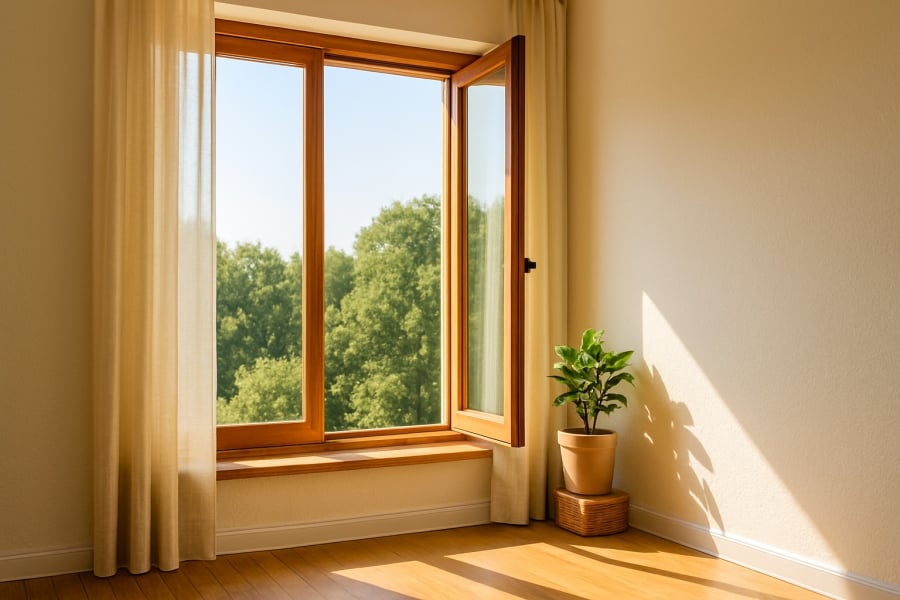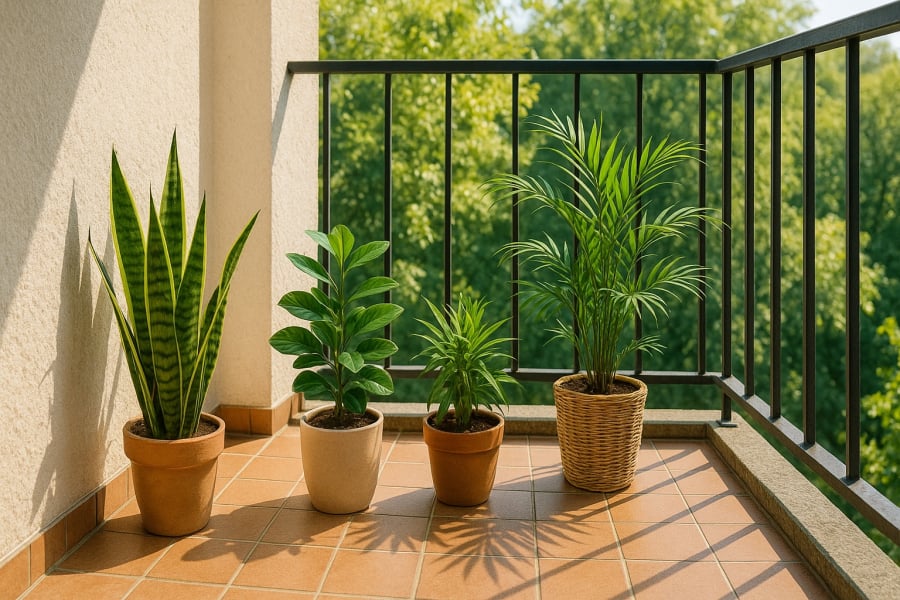The Power of East-Facing Homes in Asian Culture
In Asian culture, each direction holds a symbolic value. The East direction represents Wood, which symbolizes life, vegetation, health, and prosperity. According to renowned Feng Shui expert Nguyen Song Ha (as quoted in Tien Phong Newspaper), “The East direction signifies the rising sun, new beginnings, and a powerful source of energy that supports the sustainable growth of the household.”
Hence, a well-designed East-facing home can attract positive energy and bring good fortune in terms of health, wealth, and family harmony.
East-Facing Windows and Balconies: Inviting Positive Energy and Light
One of the most potent Feng Shui elements is having windows, balconies, or open spaces that face the East. Natural morning light not only purifies the air but also symbolizes openness and good luck.
Architect Nguyen Hoang Phuong (as quoted in Dan Tri Newspaper) explains, “Homes with East-facing windows often create a refreshing feeling in the morning, energizing the start of a new day. This is a popular choice for modern families when designing their homes.”
If your home has East-facing windows, keep the space clean and unobstructed to allow the sunlight to stream in. This practice promotes good airflow and enhances the positive energy throughout the house.

Placing Vibrant Plants in the East Direction: Nurturing Life and Prosperity
As Wood represents vegetation, placing vibrant plants in the East direction is an effective way to attract good fortune. Plants such as bamboo, jade, money plants, and cau tieu tram thrive in this direction and hold positive Feng Shui meanings.
For instance, bamboo symbolizes longevity and resilience, while money plants represent wealth and prosperity. When placed in the East direction – the direction of life – these plants are infused with vibrant energy, attracting abundance and good luck.
A survey by VnExpress on home decoration trends in 2025 revealed that “Over 60% of homeowners choose to place plants on their East-facing balconies or near windows to create a relaxing atmosphere and enhance the Feng Shui of their homes.”

East-Facing Family Spaces: Fostering Love and Connection
Having common family areas, such as living rooms, dining rooms, or gathering spaces, facing the East is considered auspicious. These are places where family members connect and share experiences. When positioned in the direction of “life energy,” these spaces enhance family bonds and promote harmony.
Moreover, in traditional Feng Shui philosophy, “A harmonious family attracts smooth-flowing energy.” Thus, homes with dining rooms or living rooms that welcome the morning light from the East are believed to have a strong foundation of positive energy, which is crucial for long-term prosperity.
Small Considerations for Maximizing the Benefits of the East Direction
Even with positive Feng Shui elements in place, if the East direction of your home is damp, cluttered, or dark, the positive energy may struggle to flourish. Therefore, ensure that:
- The East direction of your home is well-ventilated and bright
- You avoid placing sharp objects or creating clutter in this area
- You incorporate shades of green – a color that complements the Wood element
Conclusion: Embrace the Power of Direction for a Fortunate Life
Feng Shui is not superstition but an art of balancing living spaces to enhance positive energy. If your home naturally has these three lucky elements facing the East, congratulations! This is a wonderful sign of attracting wealth, health, and fulfillment.
Pay attention to every corner of your home because luck may be waiting for you to unlock it, starting from where the sun rises every morning.
Information provided is for reference and exploration only
































